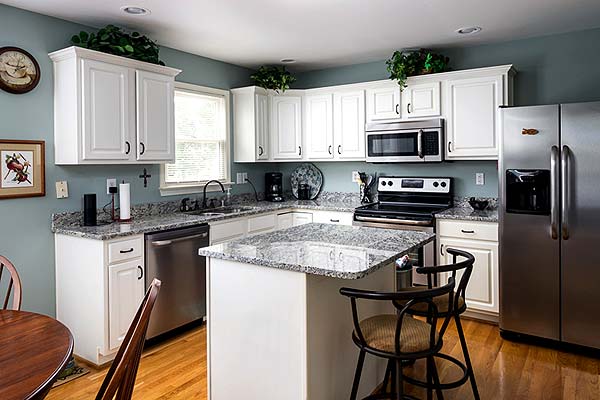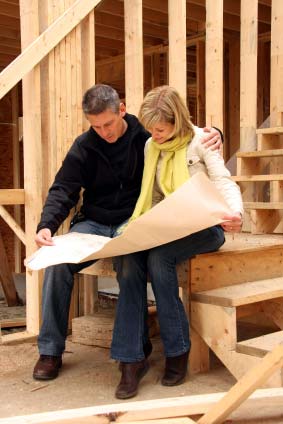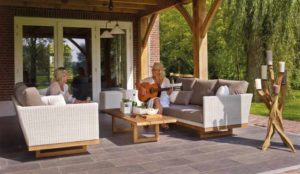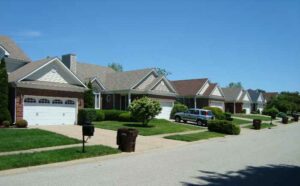With homeowners becoming more interested in sustainability and environment-friendly lifestyle, energy-efficient homes are increasingly popular. So what does that mean for homebuyers? Keep reading to learn more about buying an energy-efficient house.

Where are we headed?
Pretty much everyone wants a house that is efficient. A study from the National Associate of Realtors (NAR) reports that around 10 percent of people younger than 34 asserted that they were willing to spend more money on a newly constructed home. Most of the time, new construction means buying an energy-efficient house.
Green features go hand-in-hand. Many buyers are looking to reduce their impact on the environment. This, at the same saving on money on their utilities.
When looking at existing homes it can be tricky identifying which are more energy-efficient than others. An easy call is looking for Energy Star appliances. Let’s dig deeper and see what else we might find.
Buying an Energy-efficient House

When you are looking for a home to buy, you should look for one that uses less energy to produce the same amount of electricity. For example, if your water heater is far from your bathrooms, it takes more energy to heat up the water.
Does the house have a lot of lights? Choosing more energy-efficient LED bulbs is a smart move but how you use your lights also has a big effect. Do you remember to turn off the lights when you leave the room? Are your kids big fans of 20-minute hot showers? Do you happen to have a large family? All of these factor into your monthly utility bill. If you’re interested, visit Get Energy Simply to learn more on how to lower energy bills.
Benefits of Energy-Efficient Homes
More than efficient light bulbs, there are other ways to save money on your household expenses and conserve power. According to the cheapest energy supplier MoneyPug, there are many ways to save money on utility bills, provide tax rebates, minimize carbon footprint, boost the economy, and increase your overall quality of life.
For example, you can save on utility bills by minimizing the waste of energy. In order not to waste energy, one great option are energy-efficient radiators which will enable you to control the heating via WIFI. Interested? Check out BestElectricRadiators to see solutions that will help you stay cozy in the wintertime and save money at the same time.
Another way to save on utilities is to make use of energy comparison sites that compare providers’ rates around your area of residence. Sites like these help you compare providers’ rates by just entering your zip code. For instance, if you live in Connecticut, you will be sure to get the best electric rates in CT.
Reducing your monthly bill is just one benefit. A good Realtor will tell you that due to the growing popularity of energy-efficient homes they’re worth more when the time comes to sell. Some estimates say that green homes will sell for approximately nine percent more than comparable homes in the neighborhood.
Don’t forget about tax incentives! Depending on your location and income level, there may be a government program that will pay you to make your home more efficient.
The Downsides
The biggest downside of an energy-efficient home is the price tag. It doesn’t matter whether you’re purchasing a new property or if you’re converting a pre-existing home with certain eco-friendly features pricey.
Home appliances such as Energy Star products will also help you save energy. You will pay for it though. From new insulation to smart home technology, building a home that is more energy-efficient than most can cost homeowners 5 to 10 percent more than a conventional home. The cost to upgrade can be in the thousands.
Windows that are more energy-efficient are also more expensive. The same goes for heating and cooling systems. But there are also many less expensive ways to make the house more energy-efficient. When you’re buying an energy-efficient house, look to see if the windows and doors have solid seals around them. You can even check simple things like rubber flanges under exterior doors. Every little bit helps!
Other Considerations
All Realtors will recommend you get a home inspection before buying. Just in case they forget, you could remind them to check the attic’s insulation type, level, and distribution. In certain climates, heat escaping through the roof is the number cause of energy loss.
Have your inspector check out the other things we’ve talked about:
- Are the doors and windows are properly sealed?
- How old is the HVAC system? Is it running well?
- Does the ductwork have any gaps that need to be sealed?
- Are any of these plumbing appliances low-flow to save water?
Green appliances and LED bulbs are great. But they’re just the start. Make sure to look at these other features when evaluating which house to purchase. Putting in the time and effort will save you money on your monthly bills. It will also add value to what is probably your largest investment.



